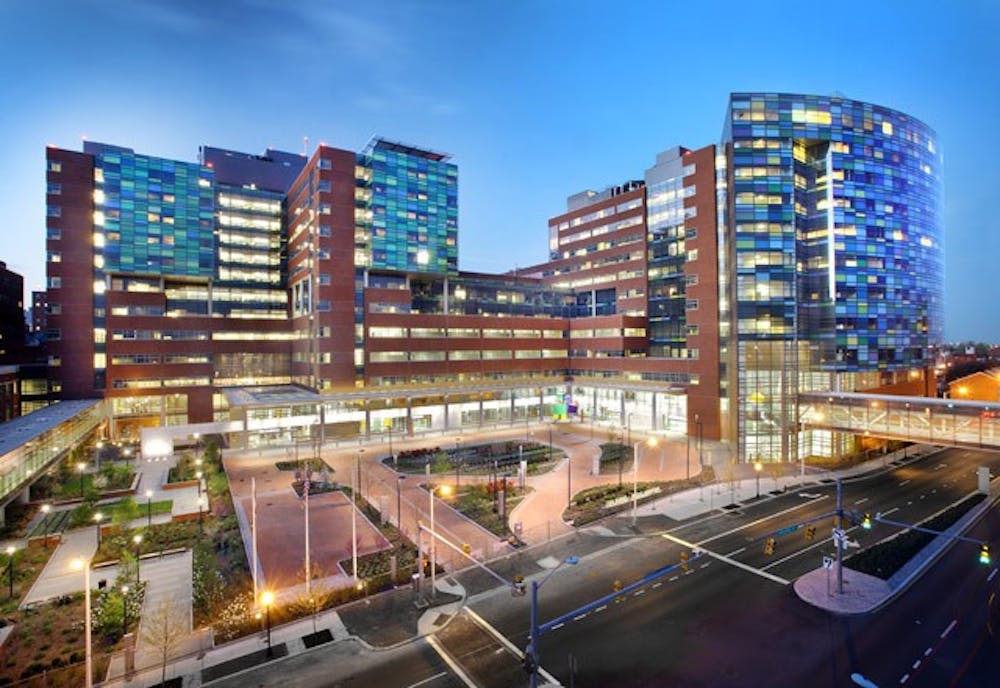Earlier this month, it was announced that Hopkins would use a $50 million gift from the United Arab Emirates (UAE) to create the Sheikh Khalifa Stroke Institute.
The Institute aims to expand upon the University’s past successes in neurology and neurosurgery while relying on the University’s experience in fields ranging from biomedical engineering to psychology. The Institute hopes to bring together both clinicians and researchers in the hopes of improving stroke treatments.
Lastly, the Institute also hopes to unite expert clinician-scientists in order to improve the diagnosis, treatment and restoration of functions to stroke patients.
Paul Rothman, dean of the Hopkins medical faculty and CEO of Johns Hopkins Medicine, expressed his excitement for the future of the Institute.
“We are grateful for the UAE’s gift, which enables us to leverage our considerable strengths in neurology, physical medicine and rehabilitation — in combination with our expertise in biomedical engineering and patient safety — to develop new tools for stroke diagnosis, treatment and recovery,” Rothman said in a press release.
Justin McArthur, director of the neurology department at Hopkins, will head the Institute. The newly formed Institute will have locations in both Baltimore and Abu Dhabi, housing two collaborating centers.
These two centers are called the Center of Excellence in Stroke Detection and Diagnosis and the Center of Excellence in Stroke Treatment, Recovery and Rehabilitation.
The Center on stroke diagnosis expects to use genetics and digital imaging of the brain to better determine the mechanism behind the disease. The Center aims to discover new ways for stroke patients to recover and lead normal lives.
“This stroke initiative is a team effort reflective of JHU and UAE’s long standing relationship, and its interventions will be fruitful for stroke diagnosis, treatment and recovery,” freshmen public health major Alix Park said in an interview with The News-Letter.
Senior Lauren Alpert, the current president of Heart and Stroke Awareness at Hopkins, added that the new Institute will shed more light on stroke research.
“Partnering with the UAE will bring more international attention to stroke research as well as patient care,” Alpert said in an interview with The News-Letter.
According to the Centers for Disease Control and Prevention (CDC), strokes kill approximately 140,000 people in the United States every year, accounting for one in 20 deaths. Furthermore the CDC states that only 10 percent of stroke survivors will recover.
Many Americans and Emiratis alike continue to suffer crippling strokes year after year. The CDC estimates that nearly 800,000 Americans suffer from a stroke annually. In the UAE, a country with few stroke centers, half of all stroke victims are under the age of 46.
“Stroke is a global affliction that demands attention. This stroke initiative serves to design new research and treatment options, paving a better future for stroke diagnosis and patient care,” Park said.
This is not the first time Hopkins and the UAE have worked together. Hopkins has been involved in UAE healthcare since the 1970s, providing specialized care to UAE citizens and overseeing several of the country’s top hospitals.
In turn the UAE provided funding for the Sheikh Zayed Tower in 2012, an adult care facility at Hopkins.
Hopkins doctors were even involved in the treatment of UAE President and Institute namesake Sheikh Khalifa bin Zayed Al Nahyan, when he suffered a stroke in 2014.
Alpert stressed the need for more advanced stroke treatment and diagnosis resources.
“Stroke is a leading cause of disability and death in the United States, so allocating resources towards improving treatment and rapid diagnosis will be an important advancement for health outcomes,” Alpert said.





